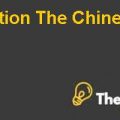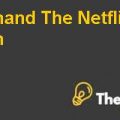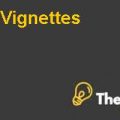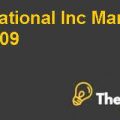United Cereal: Lora Brill's Eurobrand Challenge Case Study Analysis
Introduction
United Cereal (UC), a renowned player in the breakfast cereal industry, has a rich history marked by innovation and expansion. United Cereal (UC) in 1952 ventured into the European market over the acquirement of an English baked goods company. Over the next few decades, UC strategically expanded its European presence, adapting its products to cater to diverse European tastes and breakfast traditions. In 2009, Europe accounted for 20% of UC's global sales.
In 2010, the European breakfast cereal market was valued at $7 billion, but preferences varied widely across countries. UC's competitors included Kellogg, Cereal Partners, and Weetabix, among others. UC's European strategy involved having Country Managers (CMs) in each national subsidiary, granting them some autonomy in decision-making. However, this led to modifications in product profiles and marketing tactics, which became challenging as the market grew more competitive.
In the ever-changing food industry, United Cereal (UC) faces a critical decision: the Eurobrand concept proposed by Lora Brill, the European Vice President. This case explores UC's background, the Healthy Berry Crunch project, the Eurobrand debate, and the organizational challenges. This report aims to analyze the case and the choices ahead for UC and Lora Brill.
Problem Statement
United Cereal (UC) is struggling with operational complexities and market competitiveness in its European operations. The company's decentralized structure has led to product and marketing inconsistencies across European countries, hindering its growth potential. UC must decide whether to implement a Eurobrand strategy to standardize its offerings and marketing throughout Europe, addressing these challenges effectively. This decision is pivotal for UC's European operations and its overall market position.
Situational Analysis
Question 1: Authorize Jean-Luc Michael’s request to launch the Healthy Berry Crunch in France
In considering whether to authorize the launch of Healthy Berry Crunch in France, several key factors emerge from a comprehensive analysis. Aligning the product with the local differences and cultural nuances is essential to success. On the positive side, Healthy Berry Crunch presents a compelling market opportunity by aligning with the increasing demand for healthy and natural food products, a trend observed not only in the United States but also in Europe.
Maintaining high-quality standards and ethical conduct is not only a legal requirement but also vital for preserving the company's reputation and public trust. Its unique selling proposition, the inclusion of freeze-dried berries, sets it apart from competitors, potentially appealing to health-conscious consumers. Moreover, the introduction of Healthy Berry Crunch offers an opportunity to revitalize the Healthy Crunch brand, catering to the preferences of health-conscious adults. Additionally, being the first mover in the organic fruit-based cereal market in France, where direct competitors are absent, provides a valuable advantage.
Nonetheless, it is essential to acknowledge certain challenges and considerations. The Lyon test market results indicated mixed consumer feedback, particularly regarding the tartness of the berries. Therefore, addressing taste concerns through additional product development and consumer taste testing is imperative to ensure a successful launch. Furthermore, budget constraints raised by Jean-Luc Michel must be carefully managed.
The estimated budget of $20 million necessitates meticulous budget planning to allocate resources effectively, especially for marketing and distribution efforts. Lastly, despite the absence of direct competitors in the organic fruit-based cereal market in France, the broader cereal market is highly competitive. Therefore, any missteps in product development, pricing, or marketing may undermine the product's market position.
In light of these considerations, it is recommended that Lora Brill, as the European Vice President of United Cereal, proceeds with authorizing the launch of the Healthy Berry Crunch in France, contingent upon several conditions. Firstly, addressing the taste concerns identified during the Lyon test market is imperative to enhance product appeal and consumer satisfaction.
This may entail product formulation adjustments and further consumer taste tests. Secondly, close collaboration with Jean-Luc Michel and the finance team is essential to develop a comprehensive budget plan that ensures the necessary financial resources for marketing and distribution are available, thereby mitigating budgetary constraints. Thirdly, the development of a robust market entry strategy encompassing targeted marketing, distribution, and pricing plans will be pivotal in navigating the competitive cereal market effectively.
Lastly, implementing a monitoring and evaluation system to track the performance of the Healthy Berry Crunch in France and making necessary adjustments based on market feedback will be crucial for ensuring the product's success in the French market. This approach, characterized by thoughtful consideration of both opportunities and challenges, allows for a prudent and informed decision-making process regarding the launch of the Healthy Berry Crunch in France.........
United Cereal Lora Brill’s Eurobrand Challenge Case Study Analysis
This is just a sample partial case solution. Please place the order on the website to order your own originally done case solution.












